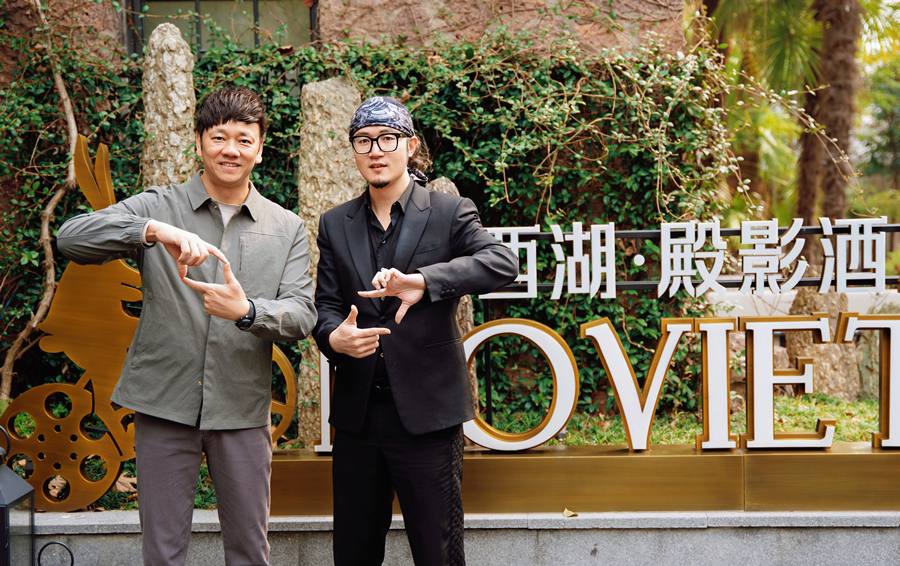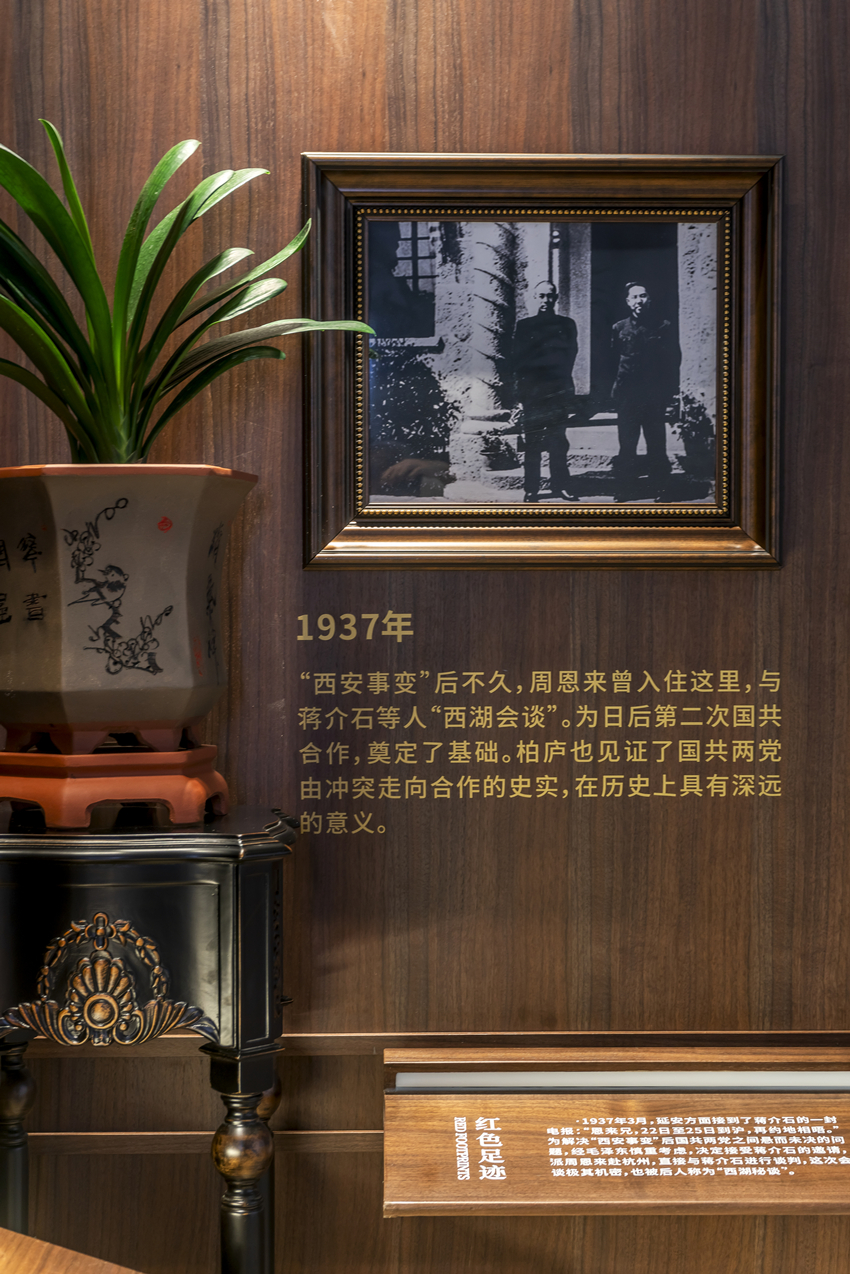A former mansion with a storied past in Hangzhou, Zhejiang province, has reopened as a movie-themed hotel, with the aim of becoming a new landmark in the city.

Left to right, Cheng Xinhua, founding partner of Movietel and chairman of Dossen International Group, and He Yan, founder of Movietel, pose for a photo at the transformed Bailu Mansion hotel, Hangzhou, Zhejiang province. [Photo courtesy of Movietel]
Following a year-long restoration, the historic Bailu Mansion now serves as a unique cultural landmark where revolutionary history meets cinematic art, according to He Yan, founder of Movietel, which operates under Dossen International Group.
"Bailu Mansion hosted such historic figures as Zhou Enlai, Chiang Kai-shek, Zhang Chong, Pan Hannian and Mei Lanfang, making it far more valuable than ordinary buildings," He explained. "Through its transformation into a hotel, we aim to systematically showcase this historical legacy, allowing the public to physically engage with national memories rather than merely read about them."
The mansion's most historic moment came in 1937 shortly after the Xi'an Incident, when Zhou Enlai — later first premier of the People's Republic of China (PRC) — stayed at Bailu to conduct secret talks with Chiang Kai-shek and Soong Mei-ling. These negotiations established the Second United Front between the Kuomintang (KMT) and Communist Party of China (CPC), forming China's united resistance against the Japanese invasion.

An exterior view of Movietel, the transformed historic Bailu Mansion, Hangzhou, Zhejiang province. [Photo courtesy of Movietel]
Marking the 80th anniversary of victory in the Chinese People's War of Resistance Against Japanese Aggression and the World Anti-Fascist War, the restored site now features a Second United Front exhibition hall and preserves historic locations including the Panlong Gate where Zhou Enlai and KMT representative Zhang Chong took their historic photo. Other restored areas include Zhou's residence, the garden and former KMT provincial chairman's quarters.
"Bailu Mansion is a pivotal landmark where the KMT and CPC transitioned from confrontation to cooperation, symbolizing national unity during crisis," He explained. The exhibition helps younger generations better understand these historic decisions, while a film on the West Lake Talks is screened in both the exhibition hall and on the hotel's outdoor display to deepen public understanding of the historic event.
After the founding of the PRC in 1949, Bailu Mansion served as a guesthouse under the Hangzhou Railway Bureau before being designated a municipal-level cultural heritage site in 2009. When Hangzhou's West Lake District government and Zhejiang Railway Development Group launched urban renewal plans, they selected the building for transformation into a heritage hotel. Movietel's restoration followed "repair as old" principles — fixing walls, replacing tiles and restoring carvings, paintings and gardens.

A photograph of Zhou Enlai and Zhang Chong posing outside Bailu Mansion on display in the exhibition hall of Movietel, Hangzhou, Zhejiang province. [Photo courtesy of Movietel]
Blending cinematic creativity with historical heritage, Movietel reimagines Bailu as a living film studio. Inspired partly by Zhang Chong — a KMT official and pioneer in China's early film industry as director of the KMT Central Film Studio — the hotel offers guests the opportunity to star in their own stories. They can meet script agents for assigned roles, receive full costume and makeup services, experience themed sets, enjoy private cinematic dining and stay in film-inspired suites — leaving with a personalized movie of their stay.
Movietel's founder He Yan noted that the property also serves as a shooting location for film and TV productions and hosts cultural industry events, including a recent salon co-organized by the China Film Foundation and Motion Picture Association during the 27th Shanghai International Film Festival last month.

A movie-themed suite at Movietel, transformed from the historic Bailu Mansion, Hangzhou, Zhejiang province. [Photo courtesy of Movietel]
"Using Hangzhou as a model, we plan to expand this 'historic architecture plus cinematic immersion' format to neighboring cities and Beijing, keeping history alive through film while establishing new local film culture landmarks," He Yan said.


 Share:
Share: 




 京公網(wǎng)安備 11010802027341號
京公網(wǎng)安備 11010802027341號